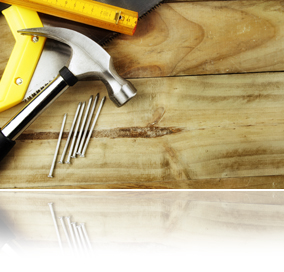There’s a lot of competition in the housing market these days. When you put your home up for sale, you’re bound to be up against several other similar listings. That’s why it is important to make sure your property is in a good state of repair so that it makes a good impression on potential buyers.
Here are some things that may need your attention or the help of a reputable contractor:
Doorways. Inspect all your entry systems closely. Look for sagging screens, cracked glass, squeaks, and aging or broken aluminum parts. Consider giving your doors a fresh coat of paint.
Roof. Check for missing shingles and have replacements installed where necessary. Also inspect the gutters. Remove any leaves and other debris that may have accumulated.
Walls. Look for nail pops, holes and dents. Patch and paint where necessary.
Toilets. Make sure all toilets are still secured firmly to the floor and don’t rock when you sit on them. Anchoring nuts tend to corrode over the years. Replace where necessary.
Faucets. Inspect all faucets, including those in the laundry room and other areas. Do you have one that drips? If so, repair or replace it.
Cabinets. Kitchen and bathroom cabinets get scratched and worn in spots over the years. There are many great scratch repair products on the market that can make cabinetry look almost new.
Decks and gates. Any loose boards? Rickety stairs? Sagging gates that you have to lift in order for the latch to close? Buyers will notice. Get them fixed.
The good news about these types of repairs is that they are relatively inexpensive, yet make your home show significantly better.









